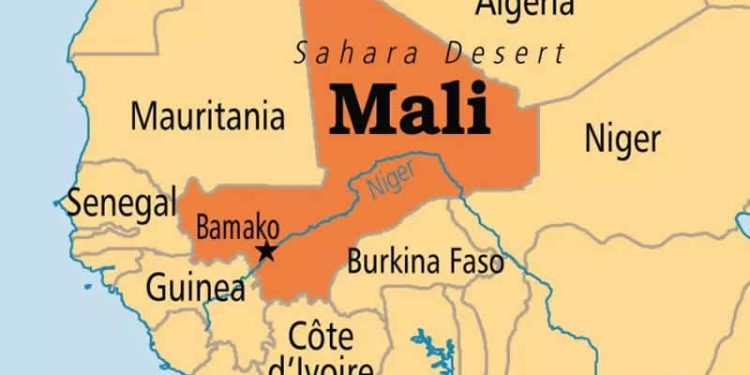Mali is under a heavy siege. Every effort to defeat terrorists who have made life unbearable for the citizens has yielded little dividend. This pathetic situation demands urgent and long-lasting solutions from the international community.
Unfortunately, the Malian military appears overwhelmed. Trained largely for conventional warfare, the soldiers find it difficult to defeat the insurgents, who are highly mobile and can strike and quickly retreat before any response from the military.
This runs counter to Assimi Goita’s promise to root out jihadists in the north of the country when he led the military to topple the civilian government in 2020.
The military had overthrown democratically elected governments in Burkina Faso, Mali and Niger under the guise that these civilian governments were unable to rein in the terror groups.
The junta expelled French and American counterterrorism forces and brought in the Russian Wagner group, now known as the Africa Corps. But incidents of violence and deaths have worsened.
The Armed Conflict Location and Event Data reported a 38 per cent rise in violence against civilians in 2023. Between January 1 and October 31, 2024, Human Rights Watch estimated that terrorist groups carried out 326 attacks against civilians. This resulted in 478 deaths.
An al-Qaeda-linked group, Jama’at Nusrat al-Islam wal-Muslimin, is the most brutal among the many terrorist groups operating in Mali. It attacked Bamako’s military airport and a military training school in the capital in September 2024. Many soldiers were killed.
Not only does it reject the state’s authority, but it also wants to establish its brand of Islam and sharia in the country.
This same JNIM has staged many attacks in the Sahel region. It competes with the Islamic State Sahel Province for control of territories across Burkina Faso, Mali and Niger.
As of mid-October 2025, there have been 3,800 reported attacks in the Sahel. Since 2019, ACLED estimated that JNIM, ISSP and others had killed over 77,000 people in more than 28,000 attacks.
Since September, the terrorists have successfully carried out attacks and cut off trade routes in parts of Mali.
Besides, the vast and difficult terrains in the blockade zones have worsened the precarious situation. Soldiers are handicapped in patrolling these terrains.
So far, the terrorists appear to be closing in on Bamako, the country’s capital. The ultimate aim is to paralyse the city and take control of the country.
The terrorists’ blockade of southern Mali has resulted in an economic and humanitarian crisis. Recently, fuel scarcity occasioned by the blockade forced the country to suspend schools and universities.
Currently, Mali is isolated internationally. Thus, it is unable to get meaningful international help due to sanctions imposed on the military junta. The country’s partnership with Russia’s Africa Corps has not helped.
More worrisome, the terrorists have decentralised cells that adapt to local conditions. They can recruit members and expand their influence due largely to local grievances against the state.
Also, some frustrated and unemployed young men are lured with the promise of better economic prospects and going to heaven if they join the jihad.
The government should go beyond military actions and address local grievances, especially poor socioeconomic conditions, if it intends to make any meaningful progress in the counterinsurgency war.
Otherwise, the military can only temporarily contain the attacks. But the insurgents will always come back.
Nigeria should show interest in what is happening in Mali. This is because the JNIM appears to be making inroads into Nigeria. It recently killed a Nigerian soldier during an attack in Kwara State last October.
Mali’s military junta should have a rethink about its exit from ECOWAS. It should drop its rhetoric and seek the cooperation of neighbouring countries like Senegal and the Ivory Coast so as to establish a strong foothold against the insurgents.
















































